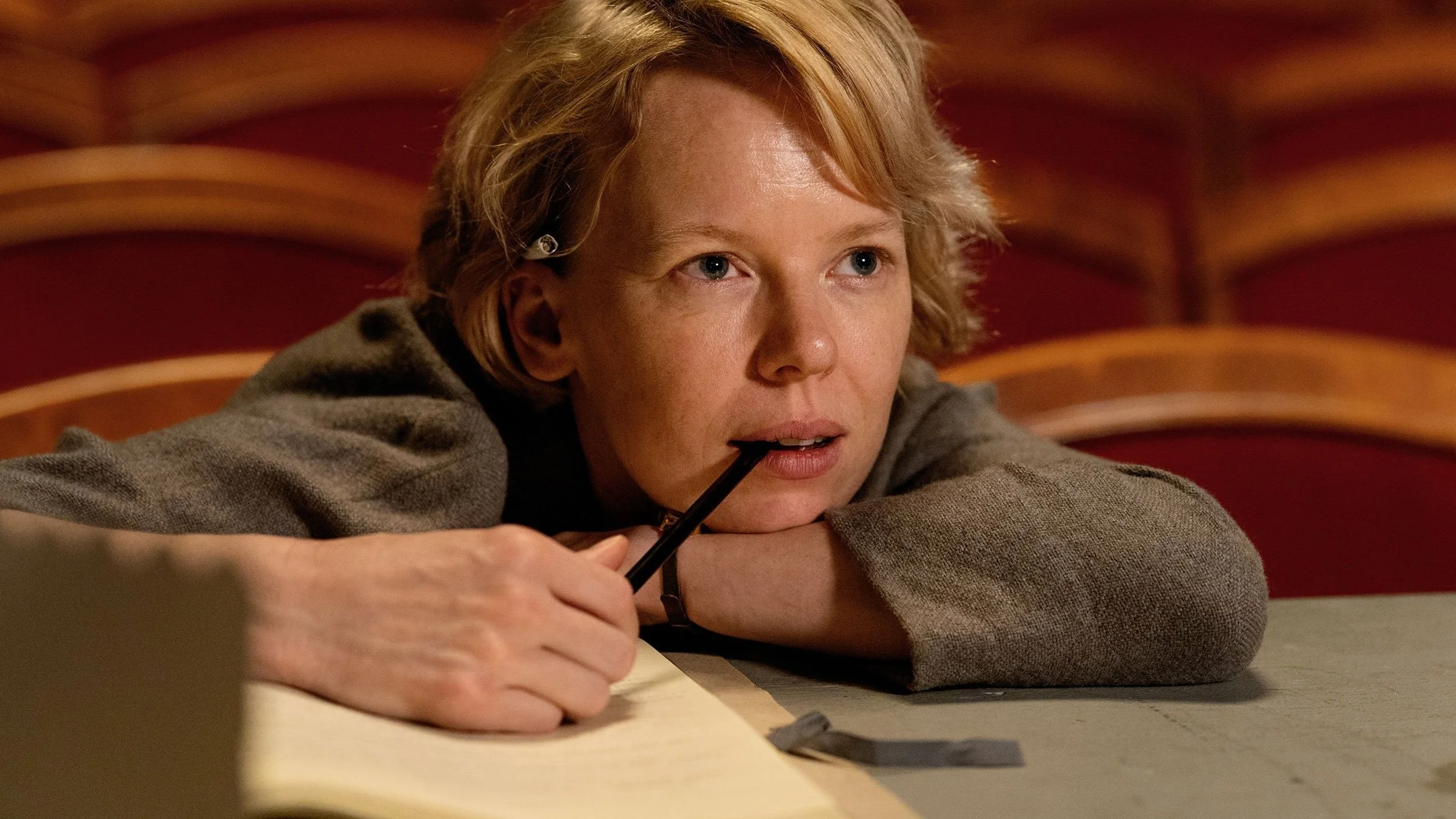Tove
The creator of the children’s cherished ‘Moomins’ is given the biographical treatment with a strong emphasis on her sex life.
Alma Pöysti
Anyone planning a dramatised biopic of the Finnish artist Tove Jansson (1914 - 2001) would quickly realise that a number of diverse possibilities of approach existed. Jansson’s chief claim to fame was her creation of the Moomins, those hippo-like creatures drawn by her who would feature in books and comic strips and would even appear on stage in a theatrical adaptation. Given the international appeal of the Moomins not least to children but also for adults, the history of their creation could have been made the prime focus. But, since Jansson was a novelist and a painter too and felt that the popularity of the Moomins overshadowed the art work which she valued more, Tove could just as well have centred on this artistic conflict. Then again there’s the fact that Jansson was a lesbian, one who defied convention and lived for the last forty-five years of her life with Tuulikki Pretilä. Consequently, the central role that this woman, a graphic artist, played in her life could have become a key element.
In the event, however, Zaida Bergroth's Tove as devised by screenwriter Eeva Putro and Jamo Elonen opts for none of these alternatives. Instead of that and despite eventually touching on Tove’s first meeting with Tuulikki (Joanna Haartti), the main emphasis is on Tove’s sex life between 1944 and 1952. The opening scenes which are set when the Second World War was drawing to a close are oddly abrupt and bitty, but once past that phase the chosen ground might have proved fertile. It does after all show Tove’s relationship with two major figures in her life. One was the left-wing politician Atos Wirtanen (Shanti Roney) and the other the rich theatre director Vivica Bandler (Krista Kosonen). There is additional dramatic potential in Tove’s conflicts over her art with her father, Victor (Robert Enckell), himself a sculptor, this being in contrast to her more sympathetic bond with her mother (Kajsa Ernst). Tove herself is played by Alma Pöysti who is engaging in the role and the other players perform competently too.
Unfortunately, whatever potential Tove might have had is undermined by the writing which fails in two important respects. We never take the tale to heart because the treatment is so superficial. When we first see Tove and Atos they are lovers but he is a married man. Later he will divorce and be ready to accept Tove’s suggestion that they marry although he is aware of her having slept with Vivica. We may eventually conclude that Tove was to some extent bisexual but that her lesbian side was the stronger. However, the film gives no guidance as to the depth of any emotional feelings involved as opposed to indulgence in a bohemian lifestyle for its own sake. At one point Vivica, having just bedded Tove, remarks that it is convenient to be married (that being her own state) and it makes clear sense to us. Nevertheless, there are occasions when concealment is ignored, be it the two women exuding intimacy together or Atos despite his married state allowing himself to be seen having patently passed the night with Tove. Apparently Tove retained life-long links with both Atos and Vivica although the film pointedly reveals Vivica’s infidelities. They don’t seem to end Tove’s love for her even though they do cause Tove to walk away - all this before her relationship with Tuulikki.
Not being enabled to comprehend fully the extent of the emotions involved leaves us mere observers of events and that is compounded by the second flaw in the writing: the use of dialogue that often feels artificial and sometimes clichéd. Since the setting is Helsinki one can at least enjoy the exchange that first leads to sex between Tove and Atos: “Shall we head for the sauna?” counts as a neat chat-up line. But later the following come up: “Have you ever kissed a woman?”, “You upper class witch” and, when Tove comments on her work, “The painting is me”. Similarly repeated references to Vivica as a dragon add to the sense that the dialogue is too ready to adopt a tone closer to melodrama than to reality. Parts of the film may be more meaningful to those familiar with the Moomins, but for those who are not the writing again falls short. We may learn that in creating these characters Jansson drew on people around her, but without more information it means little or nothing to be told that Tove and Vivica contributed to the portrayals of Thingumy and Bob respectively. One ends up by feeling that Tove Jansson’s life could indeed have been the basis of a good film but that this is not it. The failure to convince may also be attributed to an approach revealed when Zaida Bergroth commented on the amount of research undertaken when preparing the film only to add that they were then “free to be playful and to create our own story”.
MANSEL STIMPSON
Cast: Alma Pöysti, Krista Kosonen, Shanti Roney, Joanna Haartti, Kajsa Ernst, Robert Enckell, Jakob Öhrman, Eeva Putro, Wilhelm Enckell, Emma Klingenberg, Juhana Rynänen, Dick Idman, Simon Häger.
Dir Zaida Bergroth, Pro Aleksi Bardy and Andrea Reuter, Screenplay Eeva Putro, from a story by Jamo Elonen and Eeva Putro, Ph Linda Wassberg, Pro Des Catharina Nyqvist Ehrnrooth, Ed Samu Heikkilä, Music Matti Bye, Costumes Eugen Tamberg.
Helsinki Film/Anagram-Blue Finch Releasing.
103 mins. Finland/Sweden. 2020. Rel: 9 July 2021. Cert. 12.


